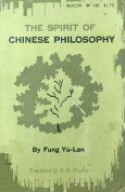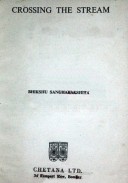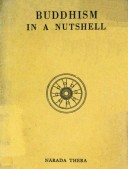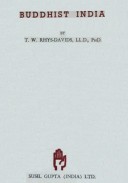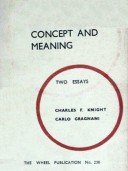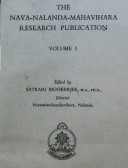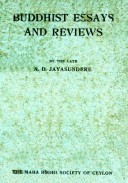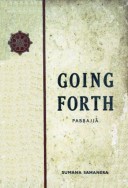CONTENTS
Author’s Preface to the English Edition
Translator’s Preface
Summary of Chapter III IN Dr. Fung’s Hsin Yuan Jen (Chungking, 1943)
Introduction
CHAP.
- Confucius (551-479) and Mencius (373-289 B.C.)
- The Philosophers Yang Chu and Mo Ti
III. The Dialecticians and Logicians
- Lao Tzũ and Chuang Tzũ
- The Yi Scripture Amplifications and the Chung Yung
- The Han Scholars
VII. The Mystical School
VIII. The Inner-light School (Ch‘an Tsuno) of Buddhism
- The Neo-Confucianist Philosophy
- A New System
Index
AUTHOR’S PREFACE TO THE ENGLISH EDITION
My country’s war with Japan broke out in 1937. Since that time, I have given a good part of my time to a series of books, which I have called a “series written at a time of national rebirth”. In these writings, it seems to me, there has taken shape—more solidly than was the case in my mind previously—a system of thought to which I have given the name of The New Li Hstieh. The significance of this name will become clear to the reader as he peruses this book.
In this series, four of the books are particularly relevant to this system of thought in its philosophical aspect: the first, Hsin Li Hsiieh (Commercial Press, Shanghai, 1939), which deals with the metaphysical aspects of the system: the second, Hsin Titan Jen (Commercial Press, 1943), referred to in this book also as A New Treatise on the Nature of Man, which deals with the ethical implications of the system : the third, this present book, entitled Hsin Yuan Tao, which deals with the historical background to the system. The fourth one, now in preparation, will be entitled Hsin Chih Yen, and will deal with the methodology of the system.
The Hsin Yuan Tao, treating as it does of the developments in the main stream of Chinese philosophy, may be taken as a concise history of Chinese philosophy, though not in the strict sense. At any rate, it certainly can be taken as a supplement to my two-volume History of Chinese Philosophy, the first volume of which has been translated by Dr. Derk Bodde of Pennsylvania University (Henry Vetch, Peiping, 1937: Allen and Unwin, London). I have put in this book all my new ideas in regard to Chinese philosophy which have arisen since the publication of my History ten years ago.
I wish to take this opportunity of expressing my thanks to my friend, Mr. E. R. Hughes, of Oxford University, for the pains which he has taken in making this English rendering. In this connection it should be noted that whilst in many passages the resources of the English language have proved fairly adequate to the demands made on them, yet in other passages the translator and I sadly agreed that there seemed no way of rendering the full sense of the original. This applies particularly to passages to a translation, whatever the languages concerned.
My thanks are also due to the China Philosophy Society, and to the Translation and Compilation Bureau, in Chungking, for the interest, encouragement and support which they gave so that my book might appear in an English form, and particularly to the China Philosophy Society for the honour which it has done me in making this book the first of its Library of Chinese Philosophy, and the first to be put before the English reading public.
Fung Yu-Lan.
Kunming,
September, 1944.
TRANSLATOR’S PREFACE
In most cases there is no need for a translator to intrude himself alongside the author of the original version. In this case, however, certain exceptional circumstances stare me in the face, so that I must ask the reader’s indulgence.
In the first place, there is plainly a rapidly growing number of people in Britain who want to know the truth about China, and in pursuit of this aim wish to study what the Chinese have to say about themselves. Here your true scholar and scientist in China finds himself in a difficulty. In facing a foreign audience, it is so easy to err in painting the picture too brightly or too darkly ; therefore the better the scholar he is the less he can be persuaded to discharge this duty. To overcome this difficulty, the only thing to be done is to take what a man has written for his own people and translate it. This is the raison d’être of this translation of Dr. Fung’s most recent book. In other words, what seemed most needed in Britain was what a teacher had to say, a teacher to whom his fellow-countrymen are looking for teaching at this time when the integrity of their national life has been so sharply assailed. As the Author’s Preface shows, the “War of Resistance” has had a searching effect on him, bringing to the surface what lay deep in him, and causing him to write and write. This philosopher, at any rate, was not living in an ivory tower and letting the world go by (as indeed I saw in 1943, when his eldest son went off to the war on the Salween Front).
Further, one utterance by a thinker and teacher, however outstanding and representative he may be, is not enough. What a thoughtful Englishman is wanting along this line is a succession of utterances, so that he may come to feel the movement in the thinker’s mind, may go away from him after one bout and come back to him a year or so later to consider a second, and then later a third, utterance straight from the living pen. Then this thoughtful Englishman can begin to place him, and in placing him get an insight into the “Great Tradition” which he has inherited and which to the extent of his powers he is helping to consolidate, or it may be in some measure to break down.
Here I think Dr. Fung is particularly valuable to us. To begin with, his boyhood, spent in his home province of Honan, the seat of China’s first cultural advance, came at the time when the Boxer Incident and its aftermath stirred China’s scholars in the deep places of their souls, as they had not been stirred for fourteen centuries. As in those earlier days they had to see themselves afresh against the background of an Indian and Westem-Asian “West” with its Buddhist challenge, so in these later days they had to do the same in the face of a European West. This time for many hundreds of young men the challenge entailed going to the West and giving the most formative years of their youth to the intensive study of Western culture, either its institutions and law, its history and traditional philosophies, or its later phases in the natural sciences. What this meant is only now to be understood and even so only in part. Where there has been a movement of the mind outward, it will be followed by a movement of the mind inward, and that the movement of a new mind, critically alert in a fashion previously impossible. The fruits of this process take time to mature, but when they have matured, as far as they can within a generation, they have a significance which is not merely personal. Nor is that significance to be judged solely by a criterion of mechanical logical perfection.
Thus, for example, some readers may perhaps feel dubious over the kind of relation which Dr. Fung sees between metaphysical propositions and formal propositions (vid. c. iii and elsewhere). I have my own doubts, though reading Mr. Austin Farrer’s Finite and Infinite I get some light on the problem. (Cf. R. G. Gollingwood’s The Idea of Nature, e.g. pt. ii, c. 3, and his emphasis on Hegel’s “That is as far as consciousness has gone”.) Again, by way of example, I, with my deeply rooted theistic mind, am not sure that I grasp the significance of Dr. Fung’s “the sublime” and “the beyond”. They tend to elude me, just as my theism makes him suspect an unwarranted anthropomorphic twist to my mind.
However, it is not for a translator to enlarge on his own opinions. The main point is that the reader should appreciate The Spirit of Chinese Philosophy as one of the fruits of the new ferment in China. For Dr. Fung, as for his scholar contemporaries, now in their fifties and sixties, the “Great Tradition” of the European West had to be explored; this on its own merits as part of China’s world heritage. An appreciation of this in many of China’s best scholars will give the right approach to the “new li hsiieh”, with its Foots in the Sung li hsiieh (dogma of the ideal pattern), and its new appreciation of Western categories of thought.
There is one other matter. The author’s position is, for all its courageous idealism (in the popular sense), none the less fundamentally realistic (in the philosophical sense). I trace a Chinese characteristic here. It is that a great deal of Western eighteenth-century idealistic philosophizing seems to the good Chinese mind rather otiose, serving no great purpose. And yet, as this book shows clearly enough, the fundamental problems on which Bishop Berkeley* and others busied themselves with such nervous energy were familiar to Chinese thinkers from classical times. May we not say that they accepted the idealist dilemma and preserved their composure over it, in spite of the cutting edge which Buddhist epistemology gave to the controversy? They would, I expect, have thought Dr. Johnson rather silly really when he stubbed his foot against a stone; and yet predominantly they remained realists, and from that angle went on to ask the question for the human race, what there was in the universe on which it could rely and what on which it could not. Not an unsensible course to pursue!
Alongside of this lay the tendency to explore the ethical implications to every kind of philosophical problem. Now, to assume from this, as too often has been done in Western circles, that Chinese philosophy has only been concerned with the ethical and has not tried to explore the metaphysical bases to ethics, is about as absurd as it could be. It merely shows that we are ignorant of the involved history of Chinese thought. Here again, Dr. Fung’s book is valuable to US. It shows how his mind moves naturally and easily to and fro between pure philosophy and applied. This may make us catch our breath, but again it is, after all, the sensible procedure for a realist, and a mystical realist at that. For one thing, it would appear that it saves the study of philosophy from the excessive intellectualization which we tend to suffer from in the West.
In conclusion, the reader may well ask why this book has been translated first and not the earlier ones in the series to which Dr. Fung refers. The answer is, because the Hsin Li Hsiieh seemed to me too long and too technical for the non-professional philosopher, whilst this book, although not a history of Chinese thought, does work out its theme on a historical basis, and for that reason alone meets our need. Also, I confess that Ỉ was attracted by the ink being hardly dry on the author’s manuscript. As I have said above, I had the feeling that what my fellow countrymen wanted was something which is palpably alive to-day and not a vintage of twenty or even ten years back. There is also a real advantage in a significant book being published in the two languages at the same time. The thinker thus submits his philosophizing to foreign and home criticism at the same time. The less of a time-lag there is, the better it is for everybody concerned. By this means, we can get started with the Socratic method on a grand scale, the really critical method on the scale which printing has made possible and which the breaking down of the distance-barrier between East and West makes it imperative that we should employ.
 Facebook
Facebook
 Google
Google
 Google+
Google+
